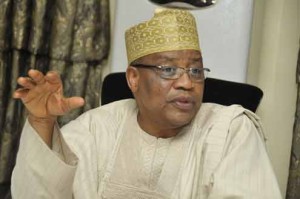Over 30 years after leaving office, former US president Jimmy Carter remains one of the most visible and respected international figures. By contrast, George W. Bush, who left office just four years ago, remains generally hidden from the public. While President Barack Obama called on former president Bill Clinton to help him campaign, neither John McCain nor Mitt Romney called on Bush. If anything, they both made concerted efforts to avoid the highly unpopular president credited with taking America to unnecessary wars and nearly crippling the world’s largest economy.
One thing that struck observers during the recent burial of former British Prime Minister, Margaret Thatcher, was how sharply she still divided opinion more than 20 years after leaving office. Naturally, there were perfunctory remarks about how great a leader she was and how she transformed Britain, but many others thought otherwise and said so publicly, singing and dancing at the demise of the ‘Iron Lady’ whose policies they believed crushed the poor and destroyed the British industrial base while making a few people very wealthy.
The legacies of some leaders are only recognised and acknowledged long after their deaths, but their visibility after leaving office clearly depends on their conduct while in power. In Nigeria, former leaders Yakubu Gowon, Shehu Shagari, Muhammadu Buhari and Abdulsalami Abubakar continue to play public roles and retain varying degrees of respect; Olusegun Obasanjo, ever garrulous, has forced himself to remain in public space, if in largely negative light; but right in the middle of these former leaders is Gen. Ibrahim Babangida, who has no known public role despite the huge challenges facing Nigeria.
Where is IBB?
Few Nigerian leaders have wielded as much power and influence as Babangida did during the eight years he held sway as military president. There was a time he dissolved the highest authority in the land, the Armed Forces Ruling Council (AFRC), and held fort virtually alone. Once, for an entire month, he was away in France for medical treatment without a whimper from any quarters. Those were heady days for the General.
Even after his somewhat hasty departure from the Villa one hot afternoon in 1993, it was clear that he had his eyes on a comeback to power. For many years after leaving office, his Minna hilltop mansion was a beehive of ceaseless activity and a political mecca of sorts. He had a hand in the emergence of Gen Abubakar as head of state after the demise of Gen Abacha, and against the advice of many, was instrumental in the decision to ‘drag’ the not-so-unwilling Obasanjo into the presidential race in 1998-99.
But IBB’s systematic deconstruction began with his politically fatal choice to champion Obasanjo’s return to the presidency. One of the most interesting coincidences of history is that the courage of then Colonel Babangida helped abort the Dimka coup attempt and make Obasanjo head of state in 1976. In 1999, Babangida also helped Obasanjo return to office as president. That IBB himself wanted to return to office in 2003 after a 10-year hiatus was never in doubt. That he saw 2007 as another opportunity was never in question. The irony is that Obasanjo, twice helped into office by IBB, twice prevented the latter from taking over the same office in 2003 and 2007.
Realising that 2011 was his last chance, Babangida jumped into the political fray, but was promptly tricked into giving up any chance he might have had by the Adamu Ciroma led group. Perhaps, it was his face-saver, considering the shenanigans that plagued the PDP primaries that saw Goodluck Jonathan defeat Atiku Abubakar.
Whatever the outcome might have been, it was clear that IBB’s last chance was gone. Overnight, his hilltop mansion became ghostly; political opportunists who saw him as a veritable ticket to office rapidly disappeared; the route to power no longer had a detour in Minna.
What is the one outstanding thing that IBB would be remembered for?
Historically, the IBB regime will always be overshadowed by his annulment of the June 12, 1993 presidential elections. After a very long and tortuous transition to democracy, to then annul the results of that election remains his greatest undoing. The country had overwhelmingly elected a Muslim-Muslim ticket without considering religion or ethnicity. To then dump that defining moment in the dustbin of history and return Nigeria to the age of religious and ethnic politics was a blow from which we are yet to recover.
Today IBB is a glorified presence in weddings, funerals and other social events. The adoring crowds are gone, the political acolytes on the run and his influence largely threadbare.
And in a classic twist of providence, the same fate that befell IBB has befallen his greatest traducer, Obasanjo: both retired Generals have become glorified invitees at minor social events. Both are licking largely self-inflicted wounds from battles they had no reason to fight. And both men, while still alive, know that history will probably not be kind to them.

